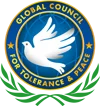Malala Yousafzai, the Nobel laureate and activist for girls’ education, has made an emotional return to Pakistan for the first time since she was shot in the head nearly six years ago in a Taliban assassination attempt.
Yousafzai, the youngest ever Nobel prize winner, arrived in the capital Islamabad with her father and younger brother, meeting the prime minister, Shahid Khaqan Abbasi, before giving a speech on national television.
“I am very happy that, after five-and-a-half years, I have set foot on the soil of my nation again,” she said, wiping away tears. “Today is the happiest day of my life, because I have returned to my country; I have stepped foot on my nation’s soil again and am among my own people.”
She added: “I don’t cry often … I am now 20 years old, but I have seen so many things in life.”
Switching between Urdu, Pashto and English, the Oxford University student reflected on growing up in the Swat valley north-west of Islamabad, watching the region become engulfed by militancy, and becoming conscious of “how many difficulties women and girls face in our society”.
“For the betterment of Pakistan, it is necessary to educate girls and empower women,” she said, adding the charity she created in 2013, the Malala Fund, had already invested $6m in girls’ education in the country.
Yousafzai was 11 when she began to campaign for education rights. Her activism became more prominent, but also dangerous, as the Pakistani Taliban entrenched itself in the Swat valley and banned girls’ schools along with music and television.
She continued writing for BBC Urdu pseudonymously and appeared in New York Times videos as the Pakistan army fought the Taliban for control of her home region.
In October 2012, when she was 15, a gunman boarded her school bus, asking “who is Malala?” before shooting her, the bullet grazing her brain and lodging in her neck.
In a critical condition, Yousafzai was airlifted for surgery to Birmingham, where doctors were able to reconstruct her skull and discharge her three months later. She remained in the UK to finish school and continue her treatment.
Undeterred by the attempted assassination, the teenager continued her advocacy, becoming a global icon for the right of girls to be educated, winning the Nobel peace prize in 2014 along with the Indian child rights’ activist Kailash Satyarthi.
Yousafzai’s arrival at Islamabad’s Benazir Bhutto airport under tight security was only announced and her exact itinerary has been kept under wraps. It is unclear whether she will visit the Swat valley.
Malala tells Aung San Suu Kyi ‘world is waiting’ for her to act over Rohingya violence
Though her shooting generated revulsion across Pakistan, many in the country, especially among its hardline Islamist establishment, remain wary of Yousafzai and say she is a puppet of the west. The Pakistani Taliban has been unrepentant about targeting her and renewed their threats since the attack.
Her experience led the UN to launch a campaign for girls’ education, guided by the former UK prime minister Gordon Brown. Her memoir, I Am Malala, sold more than 1.8m copies worldwide, and 10 November has been designated by the UN as Malala Day.
Yousafzai told the audience at the prime minister’s residence in Islamabad it had not been her choice to leave Pakistan. “But it was always my dream that I return.
“And I want to be able to move freely in the streets and meet and talk to people peacefully, without any fear.
“I still can’t believe I am here,” she added. “It is literally a dream.”


